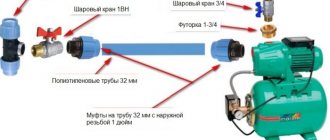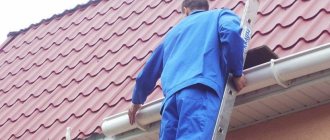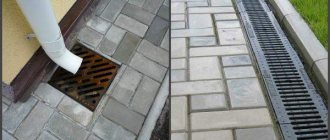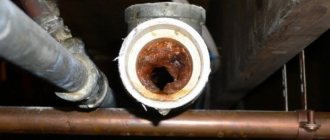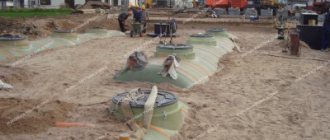Do they have the right to install a plug in the event of a debt, and in general, installing a plug on the sewer system for debtors - is this legal? How should the defaulter be notified and what requirements must the management company comply with? Let's take a closer look in this article.
The urgency of the problem regarding utility debts is not hidden in any of the existing management companies. Even despite the fact that management companies are not executors. But they merely act as an intermediary for the supply of utility services; the work of drawing up claims and claims falls on them. So it turns out that RSO makes demands for debt repayment from management companies, and they are forced to fight the debtors on their own.
How can you force people to pay their utility bills?
At the legislative level, limiting the supply of electricity, heat or gas, as well as cutting off the flow of water is strictly prohibited. It turns out that the question of whether it is legal for debtors to install a sewer plug should not arise, since these actions are the only legal way to influence willful defaulters. This option is enshrined in article number 21 of Federal Law No. 416 of December 7, 2011.
This article contains information that the owner of a residential premises has a debt to pay for sewerage services (exceeding charges for two billing periods). May be forcibly disconnected from the central sewer until the debt is fully repaid.
This circumstance allowed management companies to use special technical means called “stubs”. With their help, defaulters are limited or completely blocked from accessing the drainage system in the house. However, many may have a question. How they put plugs on sewers for non-payers, and how such measures on the part of the management company concern the interests and legal rights of other residents.
How to install in a riser
The installation of plugs is carried out using specialized equipment - a probe equipped with manipulators and a video signal transmission device.
The operator has the ability to control the installation process completely, which virtually eliminates errors in choosing the installation location and inaccuracies in positioning.
Installation is carried out in several stages:
- analyze the connection diagram of the apartment to the sewerage system, select the location for installing the plug;
- choose the option that provides maximum convenience when manipulating highways;
- equipment is brought into the sewer riser, brought through pipes to the selected location and a plug is installed.
Do you know how a ball, brass, or coupling valve works? This useful article describes how to repair shut-off valves for water supply with your own hands.
Read the instructions for adjusting the water pressure switch for the pumping station here.
On the page: https://ru-canalizator.com/santehnika/s-oborudovanie/remont-nasosa.html it is written about repairing the pump of a pumping station with your own hands.
The probe is inserted into the sewer riser , as a rule, from the roof, where its ventilation is equipped.
Many companies have equipment at their disposal that allows all operations to be performed through a sewer well, although this option is less convenient and more expensive.
It is considered optimal to shut off the pipe in an apartment in the area between the sewer oblique tee (written here) for the toilet and the common riser.
What requirements must the management company comply with when installing plugs?
As noted earlier, the answer to the question of whether it is legal for debtors to install plugs on sewers can be found even at the level of federal legislation. However, it is important to understand here that this measure can only be applied if the arrears of payment exceed the accruals for the last two billing periods. Only in this case can we answer positively whether they have the right to put a cap on the sewer if they are in debt.
It is worth noting that before the management company’s employees put a plug on the sewer, they are required to perform the following steps. Thus, 24 hours before the shutdown, the company is obliged to notify the following authorities about the upcoming event:
- bodies of territorial self-government;
- executive authority carrying out supervisory activities on sanitary issues;
- Fire inspection.
Naturally, the defaulter must also receive the notification directly.
In addition, such actions should not infringe on the living conditions of other owners of residential premises in the house, nor contradict the requirements for the suitability of the house for citizens to live in. This circumstance is enshrined in paragraph 122 of the rules for providing CG to apartment owners and approved by the Decree of the Government of the Russian Federation in 2011.
This document also contains a requirement for management companies to introduce restrictions or completely disconnect the debtor from the sewer system only a month after the first warning. This period is given to the citizen for full or partial repayment of the debt incurred.
What to do if you installed a plug
If it was not possible to prevent the installation of a restrictor on the sewer, it is necessary to take measures to officially remove it. Under no circumstances is it recommended to remove the installed plug yourself. Such work can complicate the situation throughout the house.
To remove the plug from the apartment side, it is necessary to disassemble the sewerage system in the room. When dismantling internal pipes and appliances filled with wastewater due to their obstruction through the plug, all fecal water will pollute the rooms in your home. Even a specialist will not be able to assemble dismantled sections without partially replacing them, since parts and pipes usually break during dismantling. Purchasing new fittings requires material costs.
Eliminating the limiter by exposure to chemicals is also a dubious undertaking, since to implement it you need to purchase a considerable amount of drugs and spend more than one day waiting for the result. At the same time, there is a risk of being poisoned by chemical fumes.
Removing the restrictor from the attic requires the tools that were used to install it. Without them, you can damage the riser or clog it with debris. Which will lead to even more tragic consequences in the form of a blockage of the common sewer riser and the inability of neighbors to use the sewerage system. And this is an administrative offense that is subject to a fine. It is unlikely that your actions will go unnoticed by your neighbors.
The best way to get rid of the limiter is to pay off the debt and prevent it from occurring in the future. This can be done in installments, utility workers go to a meeting or by drawing up a debt restructuring agreement.
How should a defaulter be notified?
Is it legal for debtors to install a plug on the sewer system? This can only be answered positively when the debtor has been notified by the management company of the upcoming blockage. In any other situation, such actions can be challenged in court. In most cases, the judge rules in favor of the plaintiff and obliges the management company to compensate the injured party for moral damages. For this reason, companies are required to adhere to a certain procedure for notifying debtors in the event that a plug is planned to be installed.
First of all, a written notification is sent to the defaulter that the sewerage system will be limited or access to the system will be completely blocked. After such notification, the debtor is given a period of 30 days to repay the debt. If payments have not been received to the company’s bank account, then the defaulter’s apartment may immediately be completely disconnected from the central sewer line. Partial blocking is carried out only when the management company has the necessary technical means to carry out such actions.
To notify the debtor, one of the following methods can be used:
- Personal delivery of the notification with receipt of signature upon review;
- Sending the notification by registered mail, which must contain a list of attachments.
In the event that the utility defaulter does not transfer the amount necessary to repay the debt to the company’s bank account. If technical means are available, he will have limited access to sewerage. By the way, the Criminal Code is obliged to notify the citizen in writing three days before the end of the period allotted for payment. Only in such a situation can one answer positively the question of whether it is legal to install a sewer plug for non-payers. You can send a notification using any of the methods described above.
If it is not technically possible to introduce a partial restriction on the use of public utilities, the management company has the legal right to completely block the debtor’s access to the sewer system. In this case, the management company has the obligation to notify the citizen three days before installing a block on the drainage system. The notice must be in writing and delivered personally to the defaulter against signature.
DECISION in case No. A56-19200/2014 dated January 20, 2015
The operative part of the decision was announced on January 13, 2015. The decision was made in full on January 20, 2015. The Thirteenth Arbitration Court of Appeal composed of: presiding G.V. Borisova. judges Lopato I.B., Semenova A.B. when keeping the minutes of the court session: Shamovoy G.A. with the participation of: from the applicant: Kuprina O.S. by power of attorney dated January 24, 2012; from the interested party: Gunkina V.V. by power of attorney dated January 12, 2015; from third parties: 1), 2) 3) Volkov I.G. by powers of attorney dated 05/12/2014, 01/12/2014; having considered in open court the appeal (registration number 13AP-22542/2014) of Housing Construction Cooperative No. 185 against the decision of the Arbitration Court of the city of St. Petersburg and the Leningrad Region dated 08.08.2014 in case A56-19200/2014 (judge E.V. Konstantinova .), accepted at the request of the Housing Construction Cooperative No. 185 to the State Housing Inspectorate of St. Petersburg by third parties: 1) Volkov I.G. 2) Petrova E.V., 3) Zaitseva I.V. to invalidate the order ESTABLISHED: Housing and construction cooperative No. 185 (192239, St. Petersburg, Alpiysky lane, no. 16, hereinafter - ZhSK No. 185, cooperative) appealed to the Arbitration Court of the city of St. Petersburg and the Leningrad Region with an application for recognition the instructions of the State Housing Inspectorate of St. Petersburg (195112, St. Petersburg, Malookhtinsky Ave., 68, further - GZHI SPb) dated March 20, 2014 No. 06/159-r-1 are invalid. By a court decision dated August 8, 2014, the stated demands of housing cooperative No. 185 were denied. Disagreeing with the court's decision, housing cooperative No. 185 filed an appeal, in which it asked to cancel the court's decision due to incorrect application of substantive law and incorrect conclusions of the court regarding the established circumstances of the case. The representative of housing cooperative No. 185 at the court hearing supported the arguments of the appeal on the grounds that the cooperative legally limited water drainage, since the owners of apartments No. 76,146 and 228 of the multi-apartment residential building for a long time did not pay off the debt on utility bills; the cooperative's actions to install plugs in the debtors' sewer drains did not damage the common property of the owners of the residential premises of the apartment building, since the equipment was installed directly on the debtors' individual risers. Representatives of GZHI SPb and third parties at the court hearing did not agree with the arguments of the appeal, asked the court’s decision to be left unchanged, the cooperative’s appeal was not satisfied, and stated their position in reviews. The legality and validity of the appealed decision were verified on the grounds and in the manner provided for in Articles 258, 266-271 of the Arbitration Procedure Code of the Russian Federation. Having listened to the representatives of the parties, examined the case materials, and discussed the arguments of the appeal, the appellate court finds no grounds for satisfying it. As follows from the case materials, on March 20, 2014, the State Housing Inspectorate of St. Petersburg, on the basis of order No. 06/159-r, carried out an unscheduled on-site inspection of housing cooperative No. 185, which manages an apartment building located at the address: St. Petersburg, Alpiysky Lane ., no. 16 for the cooperative’s compliance with the Rules and Standards for the Technical Operation of the Housing Stock. The basis for the inspection was the appeal of the owners of apartments No. 76, 146 and 228 of the specified apartment building about illegal restrictions on water drainage, with full payment for the said service. Based on the results of the inspection, it was established that housing cooperative No. 185 actually took measures to limit the drainage service of apartments Nos. 146, 228, 76 by installing plugs in the drainage system of an apartment building at the specified address, namely, directly on the individual risers of apartment owners with arrears due to non-payment utility bills. As a result of these actions, apartments No. 146, 228, 76 were completely disconnected from the drainage system. Based on the results of the inspection, on March 20, 2014, the leading specialist of the State Housing Property of St. Petersburg issued an order No. 06-159-r-1, which indicated that the cooperative carried out actions to deliberately interfere with the general sanitary equipment of an apartment building, installing additional equipment not provided for by its design and Rules and housing maintenance standards, the Housing Code of the Russian Federation and clause 1.6 of PINTEZhF. The specified order of housing cooperative No. 185 requires that the violation be eliminated within 10 hours or 00 minutes on April 4, 2014, or, by decision of the owners, make appropriate changes to the technical documentation of the apartment building. Referring to the illegality of the order, the cooperative filed this application with the arbitration court. The court of first instance, refusing to satisfy the stated requirements, fully assessed the circumstances of the case, correctly applying the norms of substantive and procedural law. By virtue of Part 1 of Article 198 of the Arbitration Procedure Code of the Russian Federation, citizens, organizations and other persons have the right to apply to the arbitration court with an application to invalidate non-normative legal acts, illegal decisions and actions (inaction) of bodies exercising public powers, officials, if they believe that the contested non-normative legal act, decision and action (inaction) do not comply with the law or other regulatory legal act and violate their rights and legitimate interests in the field entrepreneurial and other economic activities, illegally impose any obligations on them, create other obstacles to the implementation of entrepreneurial and other economic activities. Thus, the requirement to invalidate a non-normative legal act, decisions or actions (inaction) of bodies or officials may be satisfied by the court if two conditions are present simultaneously: the contested acts (decision, actions, inaction) do not comply with the law or other regulatory legal act, and also violate the rights and legitimate interests of the applicant. In accordance with clause 2.1 of the Regulations on the state housing inspection in St. Petersburg, approved by Decree of the Government of St. Petersburg dated November 23, 2004 No. 1849, one of the main tasks of the inspection is to carry out regional state housing supervision, monitor the compliance of residential premises of the St. - Petersburg to established sanitary and technical rules and regulations, and other legal requirements. Part 1 of Article 20 of the Housing Code of the Russian Federation (hereinafter referred to as the Housing Code of the Russian Federation) establishes that state housing supervision means the activities of authorized executive authorities of the constituent entities of the Russian Federation, aimed at preventing, identifying and suppressing violations by state authorities, local government bodies, as well as legal entities. persons, individual entrepreneurs and citizens of the requirements established by housing legislation, including the use and safety of the housing stock, regardless of its form of ownership, the legislation of the Russian Federation on energy saving and on increasing energy efficiency (hereinafter referred to as mandatory requirements), through organizing and conducting inspections of the specified persons, taking measures provided for by the legislation of the Russian Federation to suppress and (or) eliminate identified violations, and the activities of the indicated executive authorities of the constituent entities of the Russian Federation to systematically monitor the implementation of mandatory requirements, analyze and forecast the state of implementation of mandatory requirements when implemented by state authorities, local authorities self-government, legal entities, individual entrepreneurs and citizens of their activities. According to Part 5 of Article 20 of the RF Housing Code, officials of state housing supervision bodies who are state housing inspectors, in the manner established by the legislation of the Russian Federation, have the right, inter alia, to issue orders to stop violations of mandatory requirements, to eliminate identified violations, and to carry out measures to ensure compliance with mandatory requirements. A similar provision is contained in Article 17 of Law No. 294-FZ. Thus, the inspection, within the framework of state housing supervision, is obliged to issue an order if there is a violation of the requirements established by housing legislation. In this case, the subject of the dispute is the order of the State Housing Institution of St. Petersburg dated March 20, 2014 No. 06/159-r-1 on the need to eliminate the violation in the form of dismantling equipment that limits water drainage from apartments No. 76,146 and 228 of an apartment building located at the address: St. St. Petersburg, Alpiyskiy lane, 16, or obtaining a decision from the owners of residential premises to install such equipment. According to Article 154 of the Housing Code of the Russian Federation, the structure of payment for residential premises and utilities includes payment for the maintenance and repair of residential premises, which includes payment for services and work on managing an apartment building, maintenance and routine repairs, and for owners of premises in the house - and capital repair of common property in an apartment building and payment for utilities (part 1). Part 4 of Article 154 of the Housing Code of the Russian Federation explains that payments for utility services include payments for hot water supply, cold water supply, sewerage, electricity supply, gas supply (including supplies of domestic gas in cylinders), heating (heat supply, including supplies of solid fuel in the presence of stove heating). In accordance with subparagraph “e” of paragraph 32 of the Rules for the provision of utility services to owners and users of premises in apartment buildings and residential buildings, approved by Decree of the Government of the Russian Federation dated May 6, 2011 No. 354 (hereinafter referred to as Rules No. 354), the contractor has the right to suspend or limit in the manner established Rules for the supply of utility resources to the consumer. According to paragraph 119 of Rules No. 354, unless otherwise established by federal laws, decrees of the President of the Russian Federation, decrees of the Government of the Russian Federation or an agreement containing provisions on the provision of utility services, the contractor, in the event of incomplete payment by the consumer of the utility service, has the right after a written warning (notification) of the consumer-debtor limit or suspend the provision of such a utility service in the following order: a) the contractor sends a warning (notification) to the consumer-debtor in writing that in case of failure to repay the debt for payment of the utility service within 20 days from the date of transmission of the specified warning (notification) to the consumer the provision of such a public service to him may be first limited and then suspended, or, if there is no technical possibility of introducing a restriction, suspended without first introducing a restriction. The warning (notification) is brought to the attention of the consumer by handing it over against signature or sending it by registered mail (with a description of the attachment); (as amended by Decree of the Government of the Russian Federation dated February 17, 2014 N 112) In accordance with paragraph 118 of Rules No. 354, incomplete payment by a consumer for a utility service is understood to mean that the consumer has a debt to pay for 1 utility service in an amount exceeding the sum of 2 monthly payments for a utility service , calculated on the basis of the utility service consumption standard, regardless of the presence or absence of an individual or general (apartment) metering device and the tariff for the corresponding type of utility resource, valid on the day of restriction of the provision of utility services, provided that the debtor consumer does not have a debt repayment agreement concluded with the contractor and (or) if the consumer-debtor fails to comply with the terms of such an agreement (as amended by Decree of the Government of the Russian Federation dated February 17, 2014 N 112) If the consumer does not fully pay for all types of utility services provided by the contractor to the consumer, then the contractor calculates the consumer’s debt for each type of utility services separately. If the consumer partially pays for utilities and services for the maintenance and repair of residential premises provided by the contractor, then the contractor divides the payment received from the consumer between all types of utilities specified in the payment document and the payment for the maintenance and repair of residential premises in proportion to the size of each payment specified in payment document. In this case, the contractor calculates the consumer's debt for each type of utility service based on the partially unpaid amount. Taking into account these provisions, the cooperative had to separately calculate the debt for each type of utility service, and before limiting any of them, send a notice demanding repayment of the existing debt. Meanwhile, as follows from the case materials, housing cooperative No. 185 did not calculate the debt for each type of utility services, and in the claims sent to the debtors, the issue of limiting sewerage was conditioned by the repayment of debt for all types of housing and utility services (the total amount of debt amounted to 52,158.98 rubles - quarter No. 146, 37,265.18 rubles - quarter No. 228, 19,033.91 rubles - quarter No. 76), which directly contradicts the provisions of paragraphs 118-119 of the said Rules. At the same time, following their requests from citizens, they paid for sewerage services in full. This fact could be refuted by the cooperative only by the presence of detailed calculations for all types of debt. Thus, the applicant grossly violated the procedure for limiting the provision of public services. In addition, the appeal court notes that, by virtue of paragraph 122 of Rules No. 354, actions to limit or suspend the provision of utility services should not lead to: a) damage to the common property of the owners of premises in an apartment building; b) violation of the rights and interests of consumers using other premises in this apartment building and fully fulfilling the obligations established by the legislation of the Russian Federation and the agreement containing provisions on the provision of utility services; c) violation of the established requirements for the suitability of residential premises for permanent residence of citizens. In accordance with paragraph 12 of the Regulations on recognizing premises as residential premises, residential premises unsuitable for habitation and an apartment building as unsafe and subject to demolition or reconstruction, approved by Decree of the Government of the Russian Federation of January 28, 2006 No. 47 (hereinafter referred to as the Regulations), residential premises must be provided with engineering systems ( electric lighting, domestic drinking and hot water supply, water disposal, heating and ventilation, and in gasified areas also gas supply). In settlements without centralized utility networks, one- and two-story buildings may not have running water or sewerage latrines. According to paragraph 13 of the Regulations, engineering systems (ventilation, heating, water supply, drainage, elevators, etc.), equipment and mechanisms located in residential premises, as well as those included in the common property of premises owners in an apartment building, must comply with sanitary and epidemiological safety requirements . Clause 8.1.1 of the Sanitary and Epidemiological Requirements for Living Conditions in Residential Buildings and Premises, approved by Decree of the Chief State Sanitary Doctor of the Russian Federation dated June 10, 2010 N 64 (SanPiN 2.1.2.2645-10), also establishes that residential buildings should provide for economic drinking and hot water supply, as well as sewerage and drains. In accordance with clause 9.2 of SanPin 2.1.2.2645-10, when operating residential premises, it is required to take timely measures to eliminate malfunctions of engineering and other equipment located in the residential premises (water supply systems, sewerage systems, ventilation, heating, garbage disposal, elevator facilities and others) that violate sanitary and hygienic living conditions. Deliberate cessation of operation of the sewerage system, as a result of work carried out by the cooperative to install plugs, makes the residential premises unsuitable for habitation and does not comply with sanitary and epidemiological safety standards. The complete disconnection of apartments No. 76, 146 and 228 from the water supply system was confirmed by letters from housing cooperative No. 185 sent to housing cooperative No. 3 of the Frunzensky district, and by an agreement for the installation of plugs dated 10/07/2013; notifications sent by the cooperative to the debtors (case sheet 20-38). The court finds that the actions of the housing cooperative to install a plug in the common sewer riser violate the rights of other owners in the apartment building, create a threat of causing property damage to them in the drainage system, since the report on the work done by the emergency service of Zhilkomservis LLC No. 3 of the Frunzensky District dated 03/10/2014 , it is recorded that in apartment No. 76 the plug was installed in a common riser, which, by virtue of clause 5 of the Rules for the maintenance of common property in an apartment building, approved by Decree of the Government of the Russian Federation of August 13, 2006 No. 491 (hereinafter referred to as the Rules for the maintenance of common property) refers to common property owners of premises in an apartment building. Consequently, the requirements of the contested order of the State Housing Inspectorate of St. Petersburg dated March 20, 2014 No. 06-159-r-1 are legal and justified. Under such circumstances, the court of first instance assessed the circumstances established in the case and correctly applied the norms of substantive and procedural law, there are no grounds for satisfying the appeal of the housing cooperative No. 185 and canceling the court decision. Guided by paragraph 1 of Article 269, Article 271 of the Arbitration Procedural Code of the Russian Federation, the Thirteenth Arbitration Court of Appeal DECIDED: The decision of the Arbitration Court of the city of St. Petersburg and the Leningrad Region dated August 8, 2014 in case No. A56-19200/2014 is left unchanged, the appeal of Housing -coperative No. 185- Understanding. The decision can be appealed to the Arbitration Court of the North-Western District within a period not exceeding two months from the date of its adoption. Chairman G.V. Borisov judges I.B. Lopato A.B. Semenov
///
Controversial issues
Even despite the fact that management companies can put a plug on the sewer without a court decision on completely legal grounds. There are still several rather controversial aspects of this situation!
First of all, this concerns the issue of notifying the defaulter, which was discussed above. Another problem may lie in the fact that stopping the functioning of the sewerage system affects the violation of the requirements for the suitability of citizens living in the house. Or such actions contradict compliance with sanitary standards. What should you do if you put a plug on the sewer for the debts of one owner, but all the residents suffer? In any of these cases, the management company’s actions to block access to the sewerage system will be considered contrary to the law.
If the judge rules that the installation of the plug was illegal, the injured party can expect to receive financial compensation for the moral damage caused.
Details about: How sewerage is turned off for non-payment
The question of who should compensate for the installation of plugs is also very often raised, since at the legislative level there is no clear distribution of this financial burden. Naturally, the company will not be able to oblige a citizen who does not pay his own bills to make a payment for the installation of a special technical device. In such a situation, the management company often distributes payment for its actions to law-abiding residents. If this fact is revealed, you can safely file a claim in court and count on compensation from the company servicing the house.
An important rule in any situation is always strict compliance with established legislation. This is the only way to bring the offender to justice!
How to prepare for the service deactivation process
The shutdown process does not happen out of the blue. There is quite a lot of preparatory work leading up to it. It looks like this:
- Utility workers see that a resident of a house has not paid the utility bill for drainage for more than two months. Naturally, they don't like this situation.
- An official warning is drawn up and sent to the debtor, indicating that if payment is not made, the service will be disconnected.
- If within a month after the sample warning was sent to the debtor, he does not begin to pay the debt, at least in such an amount that the total amount of payment does not exceed the debt for one month, then the following notification is written. It states that if the services are not paid for, then after twenty days the drainage system will be closed.
- The document indicates the exact date when a team of workers will leave for the address in question, so the owner of the apartment must be at home at that time. Of course, it can impede work by not opening the entrance to the home, but these are not eternal protection measures, which are also illegal and services are turned off in any case. Only now you may have to pay a fine as well.
In addition, there is one more nuance, which is to send a request for deferment of the debt. But in order for it to be accepted, the reasons must be serious and the arguments reasonable.

